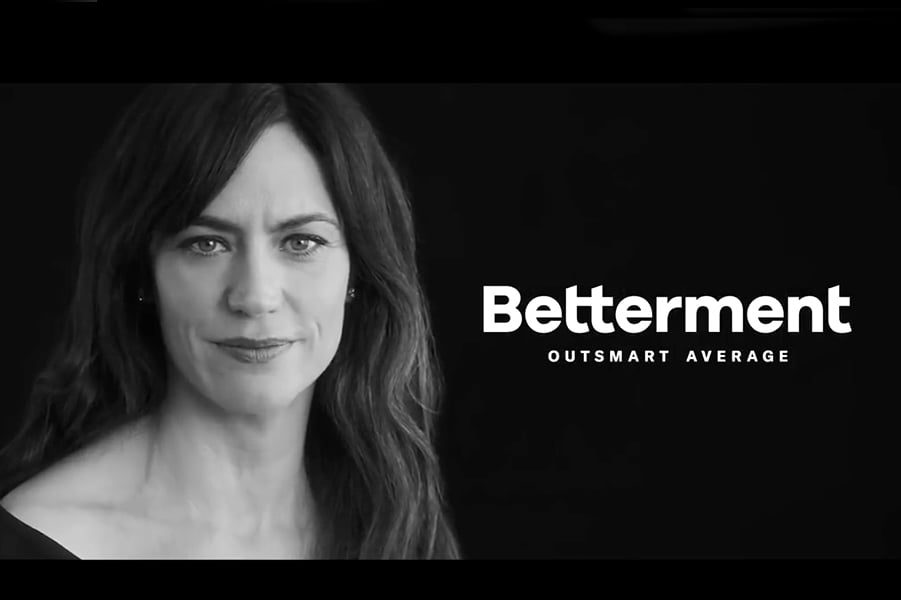Betterment has a new advertising campaign that employes the talents of actress Maggie Siff, who currently plays psychiatrist Wendy Rhoades on the Showtime series "Billions."
In the 30-second TV spots, Ms. Rhoades tells investors, "Don't settle for average investing. Demand Better." Using Betterment's digital, automated investing service, investors can "outsmart average."
"The law of averages promises everything evens out in the end. That's not true, and that's not you," Ms. Rhoades says in
one of the ads. "Betterment is designed to break the law of averages with tax efficient technology and personalized advice."
You see what Betterment is going for here. No one wants to be average, especially when it comes to investment returns. It's a sleek ad with a compelling message, featuring a star from a popular show about successful investors. The music is pretty dope, too.
But it's interesting to see Betterment put a negative spin on the word "average." Robo-advisers are built on the premise that in the long run, low-cost index funds managed by an algorithm will outperform human stock pickers chasing alpha.
Isn't tracking the market, instead of trying to beat it, the definition of average?
The problem is that cheap, easy and automated investing is a difficult narrative to sell. Or as Bill Winterberg, founder and CEO of consulting firm FPPad put it, "it's hard to take something robotic and automated and make it emotional."
"I understand why 'outsmart average can be an effective tagline," Mr. Winterberg added. "In investing, average isn't a bad thing, honestly."
Leigh Drogen, the founder and CEO of Estimize, agreed that Betterment has a bit of a marketing conundrum. As a Betterment user himself, he believes the true value is managing investor behavior rather than investment selection, but it's hard to express that in a commercial.
Mr. Drogen
called the campaign "cringe worthy," but said he'll look past the tag line because Betterment's target market — younger and less affluent people who typically can't meet a traditional adviser's asset minimums — will be better off signing up for the robo than investing on their own. According to Dalbar's Quantitative Analysis of Investor Behavior,
few investors can match an index, let alone beat one.
"They protect your against yourself. That's the edge you're getting," Mr. Drogen told
InvestmentNews. "You beat the average by simply not screwing up."
However, he does wonder if the advertisements give the wrong impression.
"When a financial product markets itself as giving investors an edge, what investors think of is they're getting some secret information or special strategy, or whatever," he said, adding that it will be interesting to see if new clients' expectations of Betterment based on the commercials matches what they receive.
Betterment's vice president of communications Joe Ziemer said the "outsmart average" tagline is meant to demonstrate how Betterment is challenging traditional ideas of finance and giving everyone the power to invest intelligently. He also indicated that the ads refer to average investors, not average performance.
"The average investor underperforms over the long haul. They don't do things like asset location, harvest losses, automatically rebalance and so on. The average investor is typically invested in products that are unnecessary expensive," Mr. Ziemer said in an email.
The ads didn't mention the human CFPs that work for Betterment's hybrid robo service. They did use some "disrupt the industry" rhetoric it was famous for before pivoting towards partnering with advisers rather than competing with them.
Still, the ads are solid and will likely resonate with the intended target demographic. Fans of "Billions" probably have disposable income if they have a Showtime account, and they probably have some interest in finance. Even if it doesn't beat the markets, it will still beat the average do-it-yourself investor.
That music though. Way better than average.







